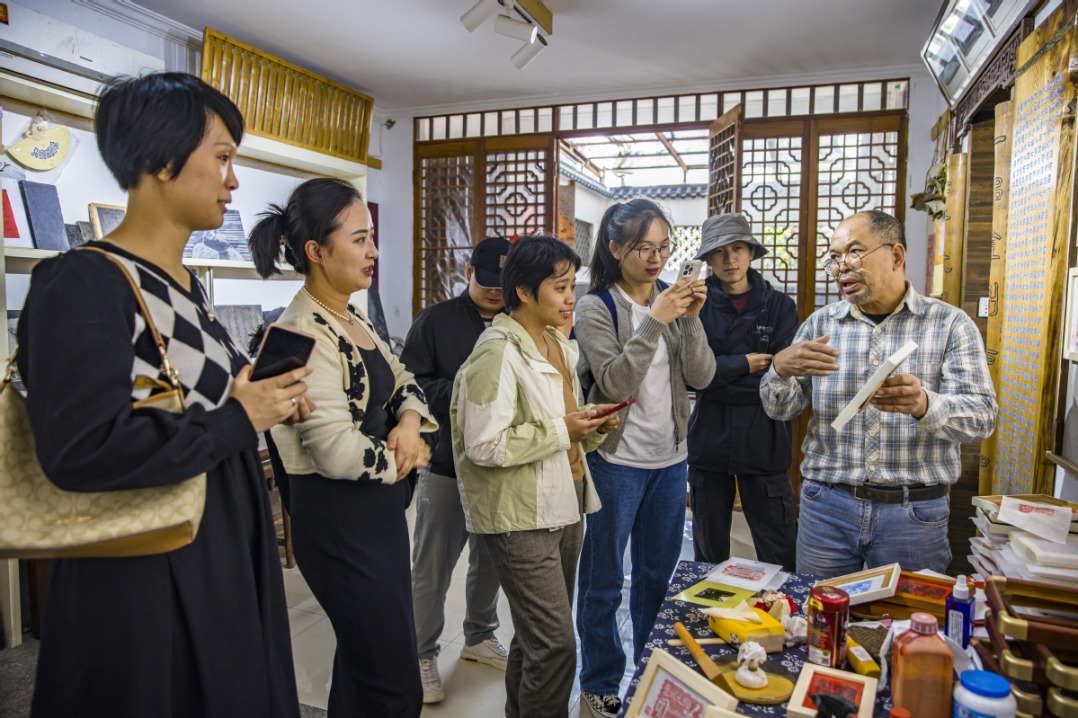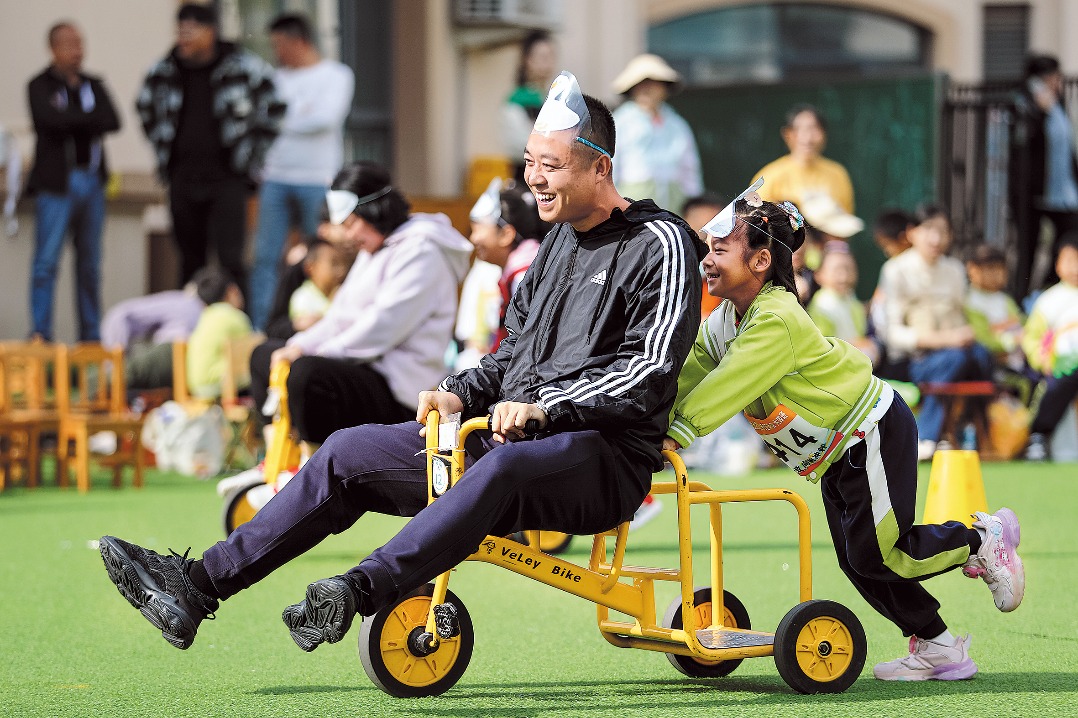Public playing vital role in moves to achieve nation's climate targets


Public participation is playing a role in improving Beijing's air quality, and is also expected to contribute to the capital's low-carbon transition, an environmental expert has said.
The city's air pollution control process has been forged with increasingly diverse participants, said Du Shaozhong, former head of the Beijing Ecology and Environment Bureau, during a recent webinar about improving air quality in the capital.
When the new millennium began, experts and teams with expertise in air pollution management were considered the most important participants in the process, he said.
However, the Beijing authorities quickly realized that the workload was so heavy that any attempts to control air pollution would not be successful without the participation of the city's residents.
Initially, the government mainly relied on publicity campaigns to call for public participation. In addition, it organized public environmental protection campaigns, said Du, who is now vice-president of the All-China Environment Federation.
For example, before the 2008 Beijing Olympic Games, the government launched a No Car Day initiative, which called on residents not to drive on one day every month to relieve the capital's stifling air pollution, he said.
He added that many members of car clubs across the capital responded positively to the move.
According to the Beijing Commission of Development and Reform, to date, more than 168,000 people have registered with the initiative's online platform. So far, they have stopped using their cars for roughly 940,000 days in total, meaning that almost 100,000 metric tons of carbon dioxide emissions have been prevented, in addition to many other air pollutants.
In another initiative, the city government is providing subsidies to encourage residents to scrap their old, high-emission vehicles (and buy newer, low-emission vehicles), Du added.
He said public participation is also of great significance to the capital's climate actions to help realize the country's climate targets of peaking carbon dioxide emissions before 2030 and achieving carbon neutrality before 2060.
In June, the All-China Environment Federation, together with four other institutions, including the Center for Environmental Education and Communications at the Ministry of Ecology and Environment, launched a national cooperation network to encourage voluntary emissions reduction action by the public, Du said.
He noted that a mini program that includes a personal carbon account mechanism has been launched in Beijing through WeChat. After registering, participants can win credits by adopting a low-carbon lifestyle including taking public transportation, riding shared bikes and purchasing home appliances that are certified as green products.
The credits can be exchanged for subway tickets or to offset the cost of using shared bikes.
With similar programs launched in other cities, the network is showing strong momentum for continued expansion.
"We are exploring ways to promote even greater public participation … in the hope of seeing consistent development for a better future", Du said.
- China releases landmark bulletin on 75 years of ecological conservation efforts
- Discover how noodles looked centuries ago
- Forum hosted in Shanghai explores AI's artistic frontiers
- CPC launches new round of disciplinary inspection
- Over 1,000 domestic, foreign guests explore sustainable ocean development
- Exporting Chinese textbooks presents opportunities, challenges




































